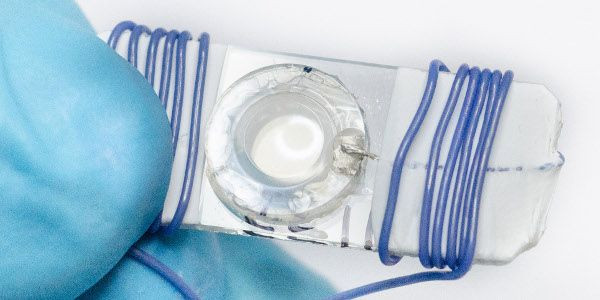Using Smartphone Technology To Create Artificial Eye Lenses May Restore Poor Eyesight, Cure Cataracts

It comes as no surprise that as we age so do our eyes — experts predict that by 2030, rates of severe vision loss will double along with the aging population. However, advancements in science and technology could make it easier for those developing vision problems to see the world around us.
The latest innovation in eyewear comes from the UK’s Devesh Mistry, a postgraduate at the University of Leeds, who is currently developing a liquid crystal eye lens that could restore eyesight in middle-aged adults. Past the age of 45, the eye lens tends to lose flexibility and elasticity, which leads to a condition known as presbyopia, or age-related farsightedness. Affecting nearly one billion people worldwide, presbyopia is characterized by the waning ability to focus on nearby objects.
Mistry was able to create implantable artificial lenses by manipulating liquid crystal, the same material found in the screens of smartphones and TVs. The synthetic replacement not only replaces the diseased lens but also functions automatically to adjust and focus, depending on the eye’s muscle movements. “Liquid crystals are a very underrated phase of matter,” Mistry told The Times. “Everybody’s happy with solids, liquids and gases, and the phases of matter, but liquid crystals lie between crystalline solids and liquids. They have an ordered structure like a crystal, but they can also flow like a liquid and respond to stimuli.”
Although Mistry is still developing a working prototype that’s set to be ready by 2018, the new lens will likely be introduced to the medical world within the next six to 10 years. The surgical procedure is noted as being quick and straightforward, only requiring a local anesthetic. In order to insert the lenses, eye surgeons would make an incision in the cornea — the clear, dome-shaped surface that covers the front of the eye — and use ultrasound to break down the old lens. The liquid crystal lens would then be inserted, thus restoring clear vision. The procedure would also cure cataracts, a condition that clouds the eye's natural lens and seriously affects vision.
In his efforts to develop this new eye technology, Mistry is also working alongside Eurolens Research at the University of Manchester and UltraVision CLPL, a company that focuses on advanced contact lenses. His research builds on previous work from the same group of collaborators who developed a contact lens that uses liquid crystal technology.



























